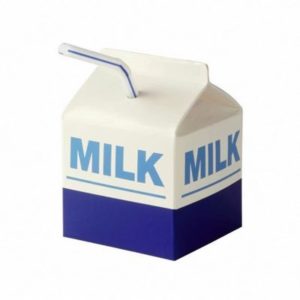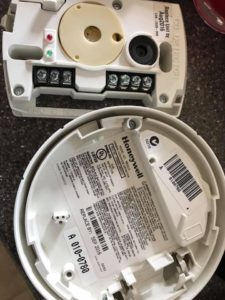What CO Detectors & Milk Have in Common?
 Many of us know that Milk has a finite shelf life in the fridge. After that date the milk will become rancid and is no longer viable to drink.
Many of us know that Milk has a finite shelf life in the fridge. After that date the milk will become rancid and is no longer viable to drink.
Did you know that Carbon Monoxide Detectors have an expiration date as well?
Carbon Monoxide detectors have a limited life of about 5-7 years and need to replaced at that time. Once they expire, the detectors are no longer able to perform their life saving duties and will not trigger an alarm. CO Detectors will have a label on them showing the expiration date.
According to the Centers for Disease Control and Prevention (CDC), over 400 Americans die from unintentional CO poisoning not linked to fires every year, more than 20,000 visit the emergency room, and more than 4,000 are hospitalized.
Bottom line, carbon monoxide detectors are not “set it and forget it” devices. You need to stay on top of them and periodically check that they’re working properly.
Here’s what else you need to know:
There are various carbon monoxide detectors on the market, from basic models to more modern units that feature digital displays and are connected with every unit in the house. No matter what model you choose, MAKE SURE THE BATTERIES ARE WORKING!
Test your CO detectors monthly and if they’re battery-operated, you need to change those batteries at least once a year. Carbon monoxide detector batteries need to be replaced every six months  (a great time to do this is during daylight saving time when you’re turning your clocks back or forward). When replacing the batteries, vacuum the inside of the detectors to remove dirt, dust, and debris, which can interfere with the working components.
(a great time to do this is during daylight saving time when you’re turning your clocks back or forward). When replacing the batteries, vacuum the inside of the detectors to remove dirt, dust, and debris, which can interfere with the working components.
Install carbon monoxide detectors on every floor, as well, and near, but not inside, an attached garage. Be careful where you place them, though. Keep carbon monoxide detectors out of direct sunlight, and at least 5 feet away from appliances and 20 feet away from any fuel-burning heat source. Also avoid areas with high humidity (shower, dishwasher), extreme heat or cold (attics, crawlspaces), and blowing air (vents, returns, and even ceiling fans).
To protect your home and family, you need to have, at the very least, basic, stand-alone smoke and carbon monoxide detectors throughout your home–it’s a necessity. But if you want to get even more protection, with monitoring and automatic notifications to the fire department and other first responders, a home security system is a great option.
With today’s home security systems, you can remotely monitor the presence of fire, smoke, or carbon monoxide and be alerted well before anything gets out of hand. The fire department will also be dispatched in the event of an alarm, even if you are not home to report the incident.
When it comes to the safety of your family and your home, anything less than constant and accurate residential fire detection and smoke monitoring just won’t cut it. A custom-designed fire system will monitor and alert you to any potential dangers and create time for everyone in your home to get away from the danger.
At Keystone Security Systems we are passionate about protecting your home, your family and your livelihood. Call us today to learn more how we can give you protection that is beyond peace of mind.
